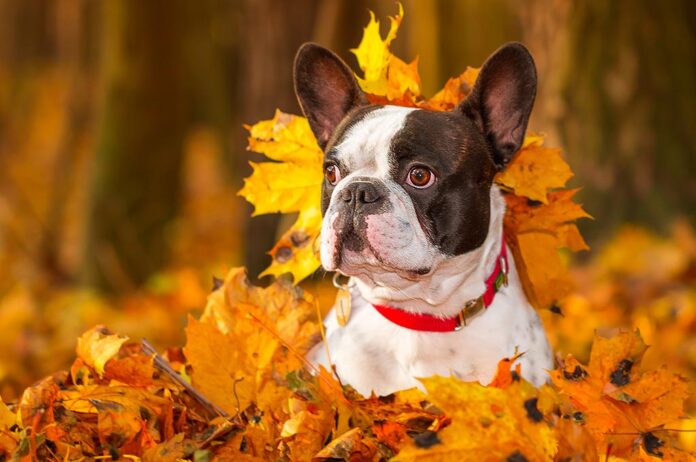- Advertisement -
- Composting is a wonderful, environmentally friendly way of breaking down kitchen waste into nutrient-packed matter for your garden. It can also sound like easily accessible table scraps to your pooch. Make sure that your compost bucket and pile are properly secured from pilfering prone canines. Decaying food waste naturally creates different types of mold. These molds produce spores that produce mycotoxins. Which, if ingested by your pet can result in tremors, vomiting, diarrhea, and fever.
- There are three types of mushrooms when it comes to pets: safe, highly toxic, and fatal. It is often difficult visually to identify which fungi fall into those three categories. And each type of toxic mushroom can contain its own symptoms ranging from hypersalivation, vomiting, diarrhea, and increased urination to neurological signs, liver failure, and death. It’s best to err on the side of caution and remove any mushroom that pops up in your yard.
- Fall plants such as Autumn Crocus, Lilies, and Chrysanthemums make for a lovely garden view or flower arrangements but can be harmful to your pet if consumed. Autumn Crocus and Lilies are especially dangerous. Signs of ingestion are vomiting, diarrhea, weakness, multi-organ failure and death.
- As trees begin to drop their seeds, be aware of your pet scavenging fallen nuts. These mouth-sized dangers are often picked up during walks or during play in the backyard. Fermented Black Walnuts, for example, contain a toxic ingredient called Tannic Acid, which can damage internal organs and cause lethargy. Ingestion of nuts, such as Acorns in their entirety, can potentially cause intestinal blockage, which can be life-threatening, and most cases require abdominal surgery to remove.
- The American Society for the Prevention of Cruelty to Animals, also known as the ASPCA, is a great online resource for toxic and non-toxic plants. ASPCA’s poison helpline (888) 462-4435 is available 24/7, 365 days a year to help with any possible toxicity concerns or questions you may have in regard to poisonous plants or food, unprescribed drug ingestion in pets, or exposure to household cleaning products.
- Advertisement -























